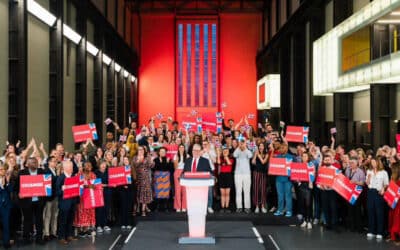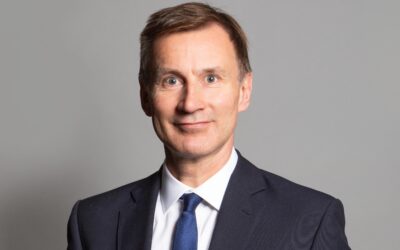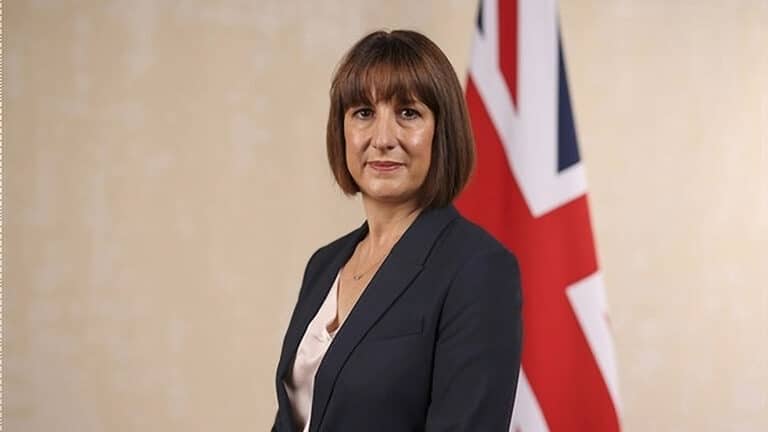The headlines today focus mainly on the £40bn of tax rises, the largest increase in a generation.
However, in a rare move, financial watchdog, the International Monetary Fund, has welcomed the “sustainable” tax rises.
Here is the latest reaction…
Caroline Norbury OBE, Chief Executive of Creative UK:
“Today’s Budget shows the direction the UK Government is taking to set the scene for what is yet to come – industrial strategy, policy change and investment for the future. The expansion of Creative Careers, regional investment in the North-East’s Crown Works studio and the continuation of vital fiscal incentive schemes such as those outlined of VFX are welcome steps towards further growth.
“The cultural and creative sectors remain a main driving force behind the UK economy, delivering growth and social value, while fuelling local communities, creating jobs, and showcasing the best of Britain to the world. We welcome the UK Government’s commitment to publishing a comprehensive sector plan for the cultural and creative industries, as part of Phase 2 of the Spending Review; and look forward to assurances from the Government that our sector will be stimulated to drive inclusive growth through a quantum of investment, alongside other high-growth areas’.
“The UK Government has already recognised the significant potential of the cultural and creative industries and as it builds on the momentum set by the Industrial Strategy, it needs to translate this recognition into strategic, meaningful action. This should be the beginning of a long-term commitment from the UK Government to fully realise the economic and societal impact that culture and creativity can deliver, in partnership with the sector. To truly unlock harness the cultural and creative industries’ potential contribution, it is essential that the UK Government heeds the Chancellor’s advice: ‘The only way to drive economic growth is to invest, invest, invest.
“This means addressing the barriers to investment faced by so many cultural and creative organisations and inspiring more people to see the value of creative education and careers. Creativity isn’t not only a driver of prosperity, but opportunity to define who we are, our place in the world and how we innovate to transform lives. Now is the time to build a future where creativity is respected and embraced as central to our national identity and success.”
Sam McArthur, partner at Praetura Investments:
“We welcome the Chancellor’s support for the Enterprise Investment Scheme (EIS) and Venture Capital Trusts (VCTs) in the Budget. With their valuable tax advantages, including tax-free gains, EIS and VCTs are increasingly appealing to investors navigating the current fiscal landscape whilst also supporting innovative UK businesses.
“In particular, the rise in capital gains tax underscores the importance of EIS, VCTs and ISAs for investors looking to manage CGT exposure while benefiting from valuable tax reliefs. These schemes also help the government achieve its stated goal of backing high-growth, innovative UK businesses.
“We’re encouraged by the government’s renewed focus on regional economic growth, particularly the funding announced for initiatives in northern cities such as the investment in the Liverpool Central Docks. At Praetura, we review over 1,300 investment opportunities each year from innovative businesses predominantly based in the North of England. This increased government support will further empower these businesses and the wider regional economy to thrive.”
Paul Bainsfair, Director General, IPA:
“At PMQs immediately before the Budget, the Prime Minister reiterated that his Government’s number one mission is growth. And the Chancellor opened her announcement by stating that the only way to drive growth and restore economic stability was to invest.
“Agencies are great growth engines and advertising spend has a multiplier effect on GDP. But the economics of agencies are dominated by payroll. The change to Employer National Insurance contributions represents a very significant increase in the cost base of agencies and threatens their ability to facilitate the growth the Government says it is prioritising.
“More broadly, agencies stand or fall on their talent. Moreover, shifts in employee rights, will significantly affect how agencies recruit, retain, and nurture the creative minds that are essential to our sector’s success.
“The Chancellor also announced increases in CGT and the tax paid on carried interest. We are concerned that this may lead to a reduction in appetite for investment in agency businesses, whether by individuals or by financial sponsors.
“We just have to hope that this short-term pain will, as the Chancellor suggested, ultimately unlock vital long-term growth for the UK economy.”
Jeff Watkins, CTO at digital consultancy CreateFuture:
“The Autumn Budget potentially brings huge opportunities for organisations operating in the UK tech sector – particularly given the Chancellor’s targets for a 2% productivity, efficiency and savings target next year for all government departments. Reeves indicated that this could well be achieved using technology more effectively in a bid to join up vital services.
“The tech sector could well play a vital role in supporting the Chancellor’s ‘seven growth pillars’ which were outlined today as part of what was called a ‘modern industrial strategy’. Those organisations specialising in AI, cloud computing and broader digital transformation could well find reasons to be more quietly confident given today’s announcement.
“The move to maintain record R&D funding to harness the UK’s science and tech base is certainly welcome news. It was also encouraging to hear about the “Skills England” initiative – hopefully this translates into a much needed ‘shot in the arm’ for digital skills – addressing the increasing skills gap we’re experiencing in the sector.
“With this budget, the Chancellor has opened up a significant opportunity for tech organisations to play a bigger role in transforming public services for the better – one built around the needs of service users.”
Mayor of Greater Manchester, Andy Burnham:
“This is the first Budget since the 1980s to get serious about the epic scale of the UK’s housing crisis. We wholeheartedly support the Government’s drive to tackle it with a new generation of council and social homes and are ready to deliver at least 10,000 in this Parliament.
“We believe this, alongside other measures in the Budget, will begin to ease the financial pressure on our councils and we are grateful to the Government for listening to our concerns on this.
“Most significantly, we thank the Chancellor for the huge vote of confidence in devolution in Greater Manchester by confirming the move to a new funding relationship with Whitehall in the form of an integrated settlement from next April. This will mean we can now go further and faster, accelerating the growth we are seeing in our economy and the improvements we are making in the lives of our residents.”
Mike Parkes, technical director at GoSimpleTax:
“It’s a mixed Budget for self-employed people. The commitment to no changes to income tax, national insurance, and VAT rates is welcome. Similarly, no rise to fuel duty will be good news to many who work for themselves and rely on vehicles.
“The Chancellor promised to modernise HMRC systems and clamp down on unpaid tax debt and penalties. It’s never been more important for the self-employed to keep on top of their finances and hit deadlines to avoid fines.
“Despite the headlines around HMRC investment, the statement didn’t provide clarity on the timelines for the delayed Making Tax Digital for Income Tax. There was mention of a corporate tax roadmap, but self-employed people also need a clear timeline to prepare for changes.
“Some contractors could shoulder the burden of the changes to Employers’ National Insurance. Those contracting through umbrella companies and paid a flat tax rate will find the rise in National Insurance for employers will reduce their take-home pay, effectively making them collateral damage.”
Rhys Merrett, Head of Tech PR, The PHA Group:
“Labour is spinning plates with ambitious promises—tax reforms, public funding and investment boosts to restore economic stability.
“But success hinges as much on the economy as it does on Labour’s ability to deliver.
“The message is clear; Labour should not take the UK’s global standing as a tech hub for granted.
“Yes, there’s talent, investment, and innovation on display, and many success stories. But mounting issues—regulation, early-stage funding, and exit options— are lingering on the minds on tech leaders. Now, the Chancellor has increased CGT, though nowhere near the figure being reported in the lead-up. However, this could add to the burden and pressure tech startups are already facing.
“These reforms might theoretically help to plug the blackhole. The question is at what cost – will their delivery of short-term relief undermine the UK’s global competitiveness, productivity, and reputation as a tech capital?
“Labour has a tough road ahead.
“The hard truth is that nobody applauds spinning plates, people only take notice when the crash to the floor – something the government wants to avoid.
“It is why the success of this budget depends on the trust, support, and belief from the business community that today’s reforms are necessary.”











